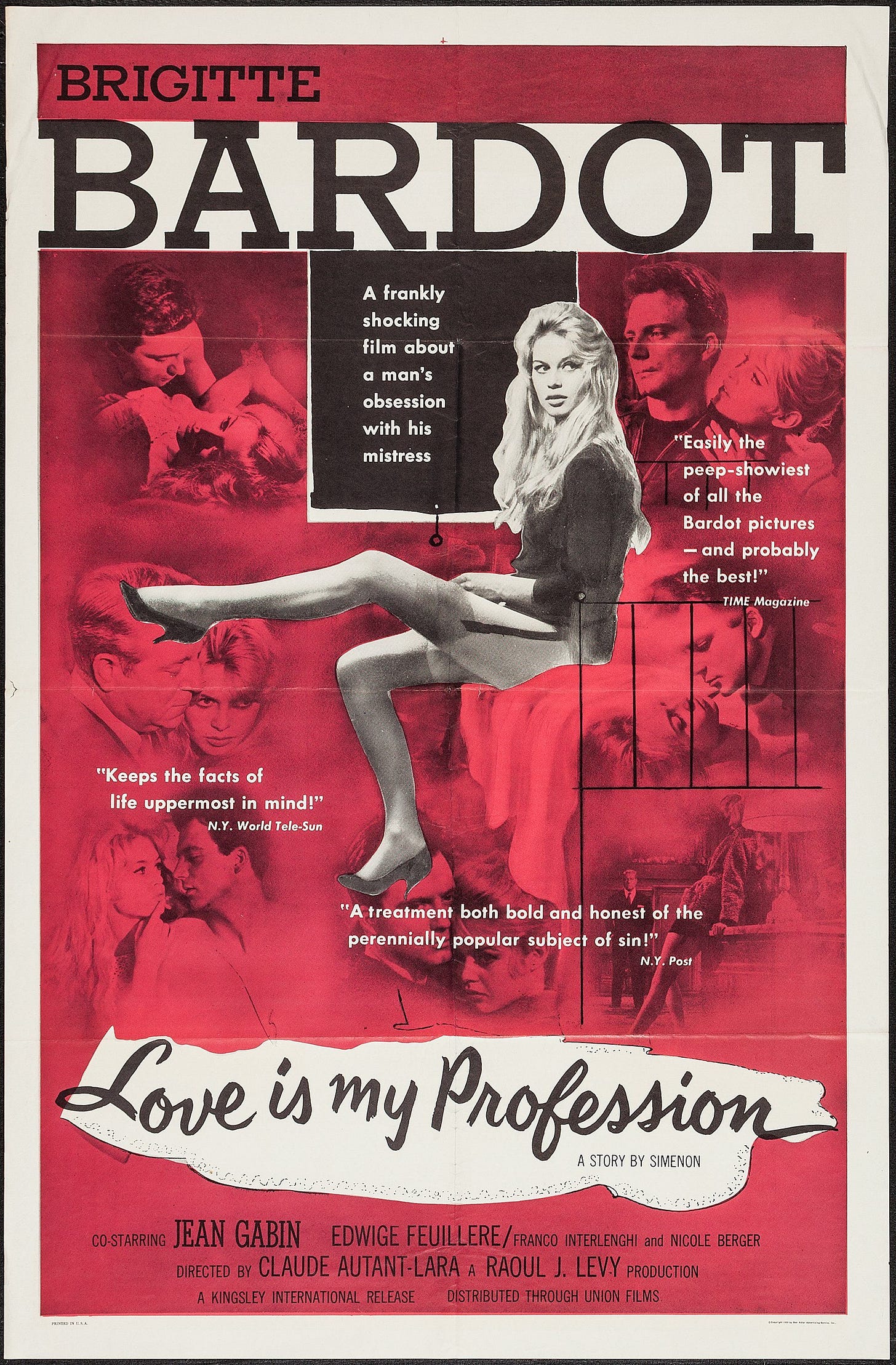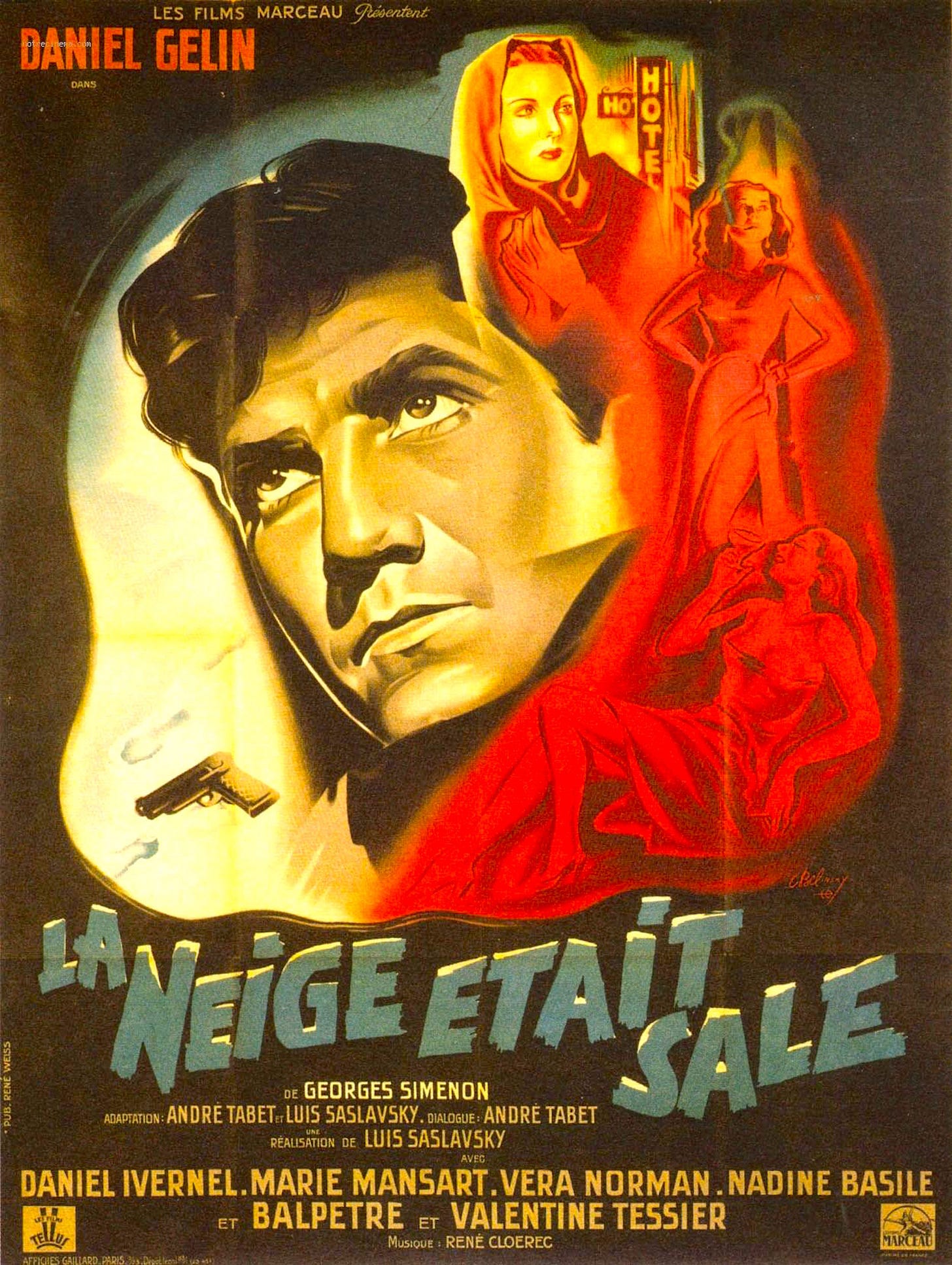In a week...Bardot/Gabin!
AND DON'T FORGET DANIEL GÉLIN...
SEVEN days away now…as we begin “the end”—the start of the “grand finale” for THE FRENCH HAD A NAME FOR IT, surely the most unexpected film festival in the world. (No knock intended for the yeoman work done in Bologna, the Cinema de Ritrovato, an actually funded (!!) consortium of international film scholars who cover the world: but their work is found in the far-flung tributaries of past cinema; here, on the other hand, we use scuba gear to travel deep into the recesses of a dammed lake where countless treasures have been buried in the silt, awaiting rescue.)
So, on October 3, we’ll show you a film that, in 2014, was extremely hard to find—which was shocking at the time, because it featured the two biggest names in the history of French cinema when the film was made (1958). And who are still two of the biggest names in French cinema in 2024.
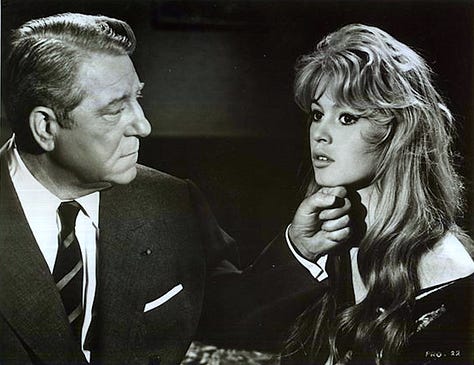
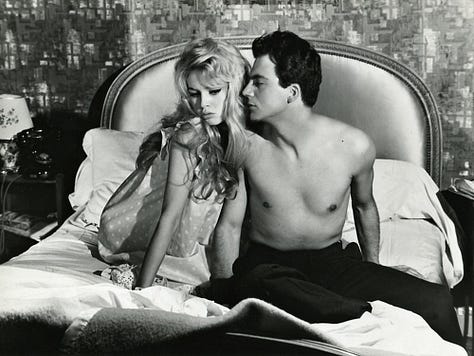
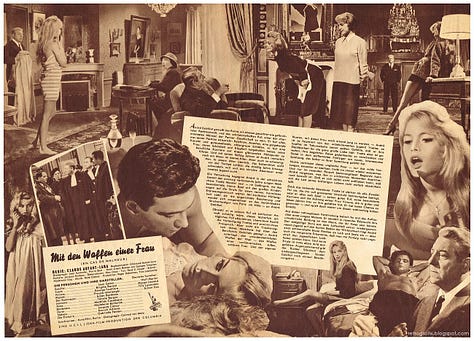
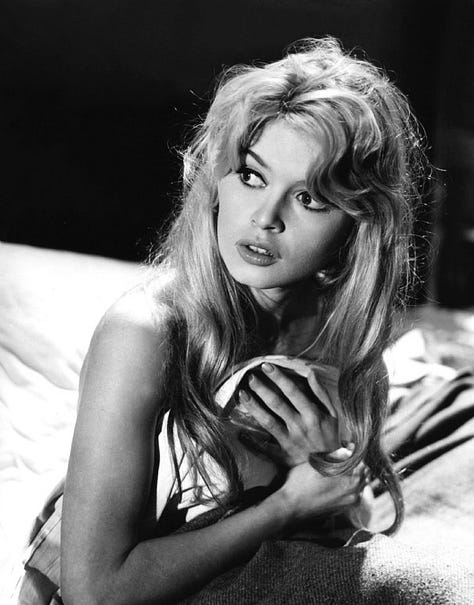
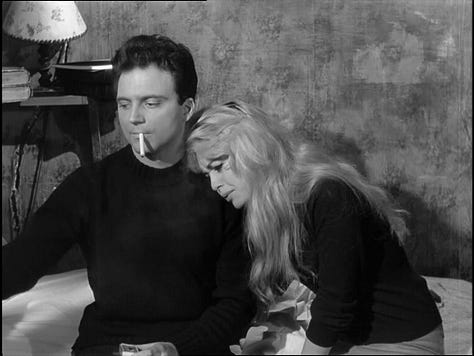
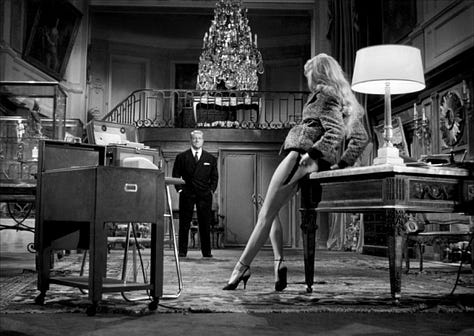
And this film—EN CAS DE MALHEUR, from Georges Simenon’s roman dur about a scandalous but strangely sweet May-December romantic liaison—contains the only time that those two icons (Brigitte Bardot and Jean Gabin) ever worked together.
It was part of a “referendum” on the impetuous (some said “infantile”) sexuality of Bardot that the French were having ever since she’d exploded onto the scene a few years earlier.
Director Claude Autant-Lara, never one to dodge a hot-button issue, took Simenon’s anguished confession of his own sexual obsessiveness and turned it into a frank but even-handed exposé of how bourgeois society creates an expectation of sexual exploitation, and what happens to those who become caught up in it.
To the respectable barrister (Gabin), the tale turns on his desire to recapture his youth, and fulfill a biological urge that had been thwarted in his otherwise exemplary marriage. To the free-spirited, footloose gamine (Bardot), it’s a strange combination of “wanting Daddy” while sensing that what she can give to him is actually something meaningful, something that will allow her to grow up.
But there are deadly complications in this ostensible moving-past-scandal “happy ending”—one where even the abandoned wife (played with characteristic aplomb by Edwige Feuillère) will have a relative soft landing. There is a jealous lover (Italian actor Franco Interlenghi, suitably hot-blooded) who is not ready—never ready—to give up the girl.
And she is not quite resistant enough to him…which (as director Autant-Lara, smiling deviously off-camera) keeps the steam boiling prodigiously from the pot, threatening to lift the lid into something…unthinkable.
NOW if you think I’m stepping hard on the gas here, in a shameless attempt to get those of you not already committed to attending FRENCH ‘24 part one to sit bolt upright (or whatever reasonable facsimile is available to you…) and make your way to the Roxie Theater at 6:30pm on Thursday, October 3…
…you’d be absolutely right!
We are recreating, for at least one night, the feverish feeling that festered in the air ten years ago when THE FRENCH HAD A NAME FOR IT began, with noirs unlike what folks had been seeing elsewhere. And you know what—even with the recent profusion of foreign noir in recent years (including this one), that’s still the case. Films such as EN CAS DE MALHEUR (and its brethren in what we call “the last wave” of French film noir) push the envelope in ways that didn’t happen elsewhere.
And we might chalk that up to Simenon, whose insatiable desires and internal anguish about it brought about a cauldron of texts that went far beyond the world of his police inspector with a bit too much a fascination with the criminal mind. Maigret was fine, but he was no match for the tortured protagonists of Simenon’s romans durs, where terrible reckonings were only an interior monologue away from bursting from the page to envelop the reader.
SO what truly makes Opening Night of FRENCH 24/1 special is that we follow up the flashy (and fleshy) Bardot/Gabin moment with a film that puts to shame the “Bleak Week” concept captivating audiences at Los Angeles’s American Cinematheque. LA NEIGE ETAIT SALE (aka THE SNOW WAS BLACK) plumbs the depths of depredation in a way that no one else has quite managed, despite seven decades of attempts. Whatever transgression Simenon had performed prior to writing this roman dur must have been so emotionally lethal for him that it required this haunted, harrowing tale of a truly damned soul.
As our pioneering compatriot Didier Dumonteil notes, THE SNOW WAS BLACK epitomizes tarnished purity—a state of self-loathing that, in its on-screen existence across the world in film noir, that is best embodied by the French (who, of course, don’t have to translate Simenon, who has bottled it for them). Waiting for nearly a decade to bring such a haunted character to life is Daniel Gélin, an actor assured in his sense of restlessness.
But here he goes within himself in ways that are genuinely startling, saturating his character with a sense of ongoing implosion. We know that in noir, something goes wrong for someone and they go off the rails—it goes with the territory. But I’m not sure anyone has captured the sense of helplessness that Gélin conveys here, as he’s given chance after chance to pull up from his nosedive, but…
It’s all there on Gelin’s face…his strange, sad, careening sleepwalk into a dark night of the soul. (It’s a role that by his own account took him months to emerge from, and one that he thought cast a shadow over him: events in his personal life took on a more fraught dimension afterwards.)
I am not surprised to discover that Tom Luddy, the late, great mastermind of the Telluride film festival, counted this as one of the most haunting films he’d ever seen.
SO this is where the rubber meets the road, noir-wise—where, a week from now, the haunted world of Georges Simenon will cascade across the screen to remind us that “there but for the grace of God”—and a controlled dose of cautionary tales—we go.
Please join us on October 3rd for an inoculation that is more powerful than any you can receive at the end of a needle.
Get your tickets for the opening night of FRENCH 24/part 1 here…


